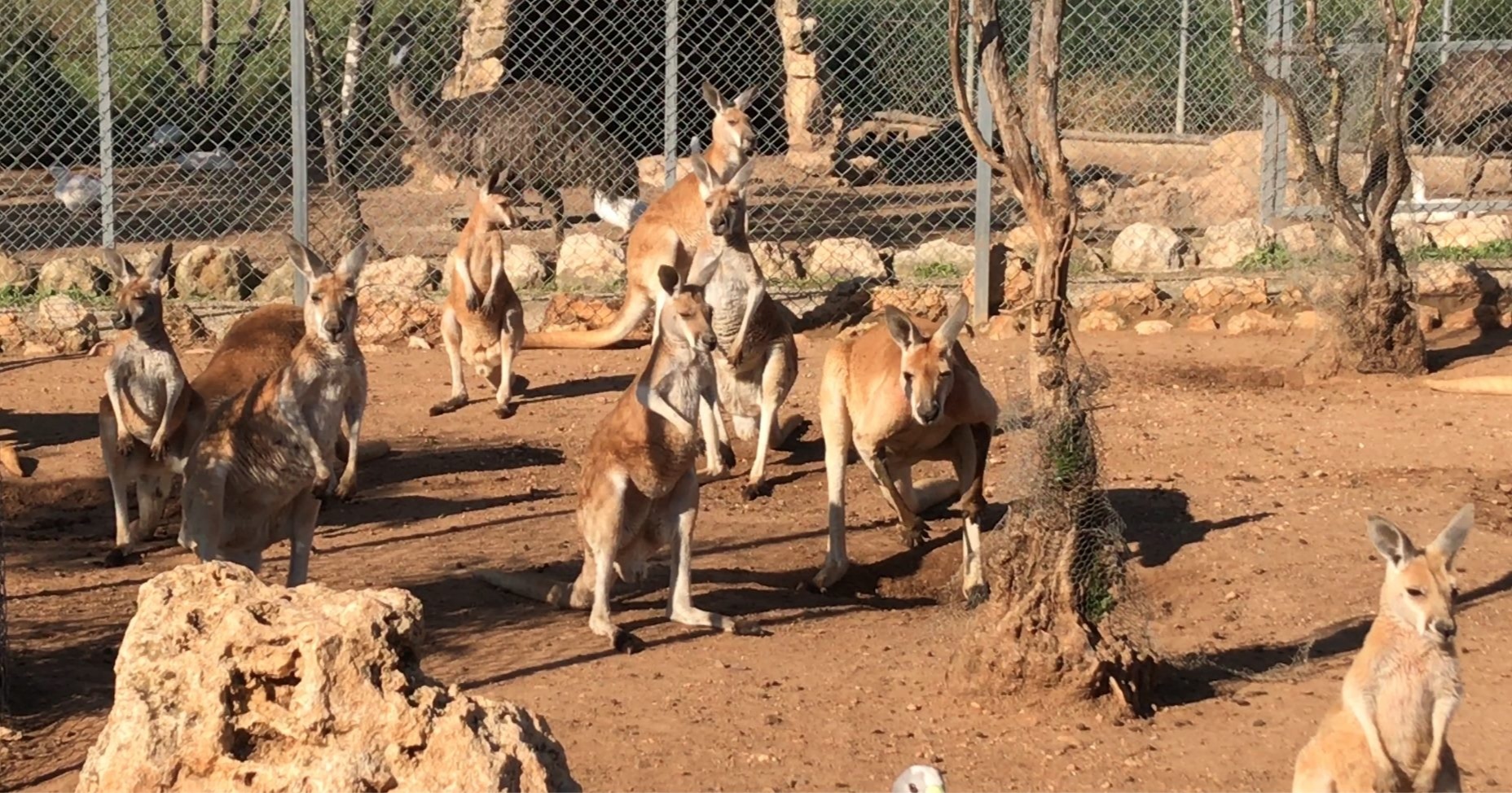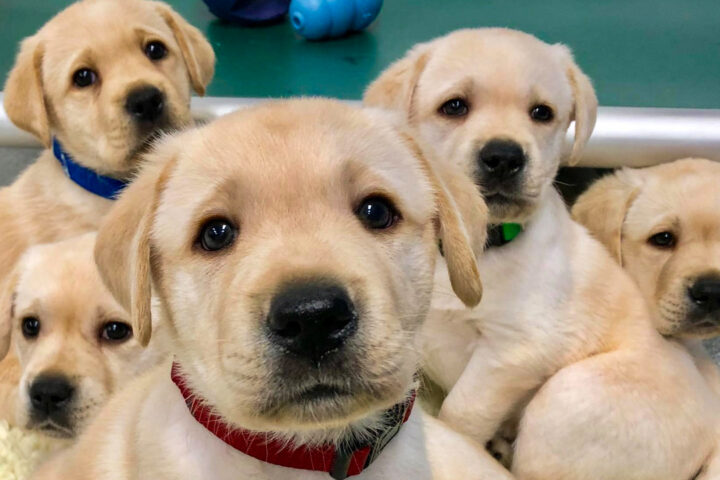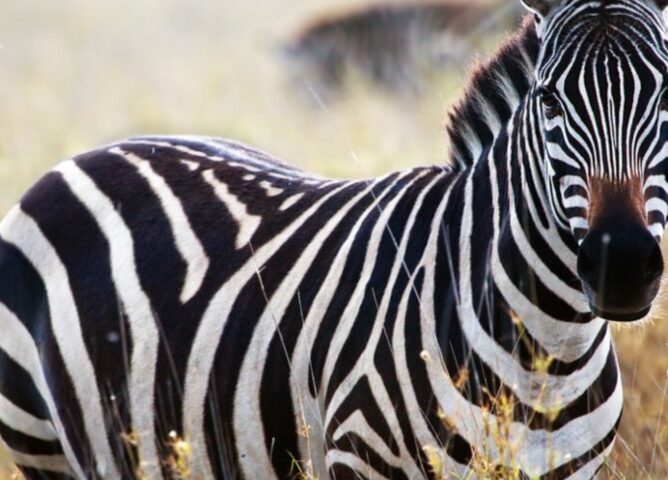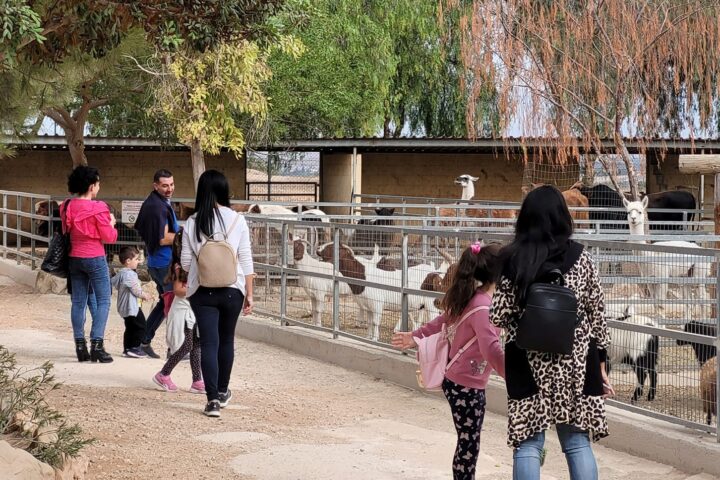The biggest zoo park in Nicosia has a long history dating back more than three decades.
It is located in Ayious Trimithias and was created out of the vision and love of a single man, Menelaos Menelaou.
He launched a small bird collection as a young boy who invested his savings while working as a car mechanic from 13.
Today, thousands of people visit his park annually across divided Cyprus.
However, he is facing enormous challenges due to bureaucracy and corruption.
Perhaps the story of the wild eagles is telling.
In the 1990s, the Forestry Department delivered to Menelaou two injured wild eagles to care for them and gave him ownership of the birds.
Melios, as he is commonly known, with the support of British experts, managed to rescue the birds.
Still, they were determined that they could not be released back to the wild because they were now accustomed to humans and were at risk of being shot or captured by poachers.
He put them through a reproduction programme. However, the Game and Fauna Service of Cyprus decided to launch an aggressive investigation resulting in damages and injuries to multiple birds, including parrots.
A court decision ordered them to pay damages to Melios Park due to these damages.
Melios spoke to the Financial Mirror about his trial and tribulations with the authorities.
How did this project start?
It all started when I was very young, collecting animals and birds from age 13 out of a love for animals and nature.
I invested every cent I earned as a car mechanic, buying birds and animals. That’s when I started working and paid my contribution to the social security fund.
My small private collection was growing fast as a result of the reproduction and also of the trading I was doing, selling animals and birds that I succeeded in reproducing and acquiring new ones.
By 1986 I had one of Cyprus’s largest collections of birds and animals.
By 1990 I began Importing from the UK and later from Holland and Belgium.
Ten years down the road, I succeeded in having the biggest collection on the island, so I decided to dedicate myself professionally to this field.
After consultations with the Veterinary Services, I launched the first private zoo on the island.
The thinking was that by 2004 the legal framework would have been in place following the accession of Cyprus to the European Union, based on which I would have been able to obtain a permanent licence.
In the meantime, I imported more wild animals from licensed farms in Europe.
Every import was born in captivity and was legal.
Since 2000 I have assigned the project architects to obtain a building permit.
By July 29, 2010, the competent authorities issued a building permit for a theme park exhibition of animals and birds.
The delay resulted from the bureaucracy among the various government offices, which continued to monitor the progress of the wounded eagles.
However, in 2007 the Game and Fauna service raided my park and found nothing I possessed illegally.
After committing enormous physical damage to the birds and their cages, they found the eagles that the forestry department had given me earlier.
They wounded many birds in the process, even valuable parrots.
They even damaged the eagles’ eggs we tried so hard to reproduce.
If I was holding those wild eagles illegally, how come those who gave them to me after capturing them from their habitat did not suffer any legal consequences?
Surprisingly, the court did not touch this matter, but in a civil lawsuit (1804/11), the court ordered the Game and Fauna Services to pay me compensation for the damages they caused to the animals.
Because of the lawsuits I have filed against the Game and Fauna Service and the Veterinary Services, I became the target of attacks by the then Minister of Agriculture, who said he would not renew my zoo licence nor renew my licence to be able to conduct animal trade.
He also threatened to demolish the park.
Were the animals held legally?
Yes, of course. Even when the legality of the eagles was challenged in a criminal case, the court ruled that the birds did not come in my possession legally, even though the Forestry Department gave them to me. In the civil lawsuit, that decision was put right.
Were there more such cases?
Unfortunately, that wasn’t the only case in which the authorities have acted against me and the law.
In 2008, even though I informed the Veterinary Services of my intention to import three jaguars, once the animals arrived, they kept them in detention for days without allowing their import.
If they didn’t want these animals imported, why didn’t they say so in the first place?
Instead, they led me to believe it was OK, and then they returned the animals to their country of origin in Europe after suffering during detention.
One of the animals didn’t make it, and Cyprus became the target of bad publicity for allowing a rare animal to die because the authorities mistreated them.










